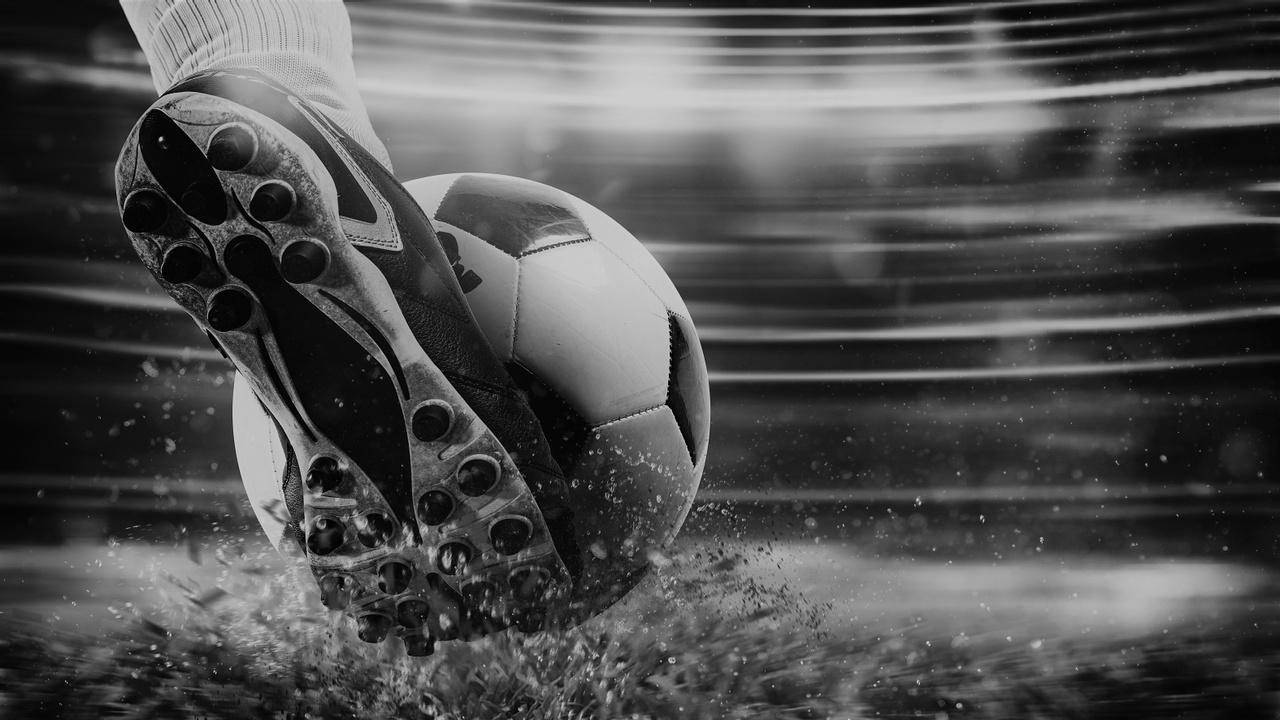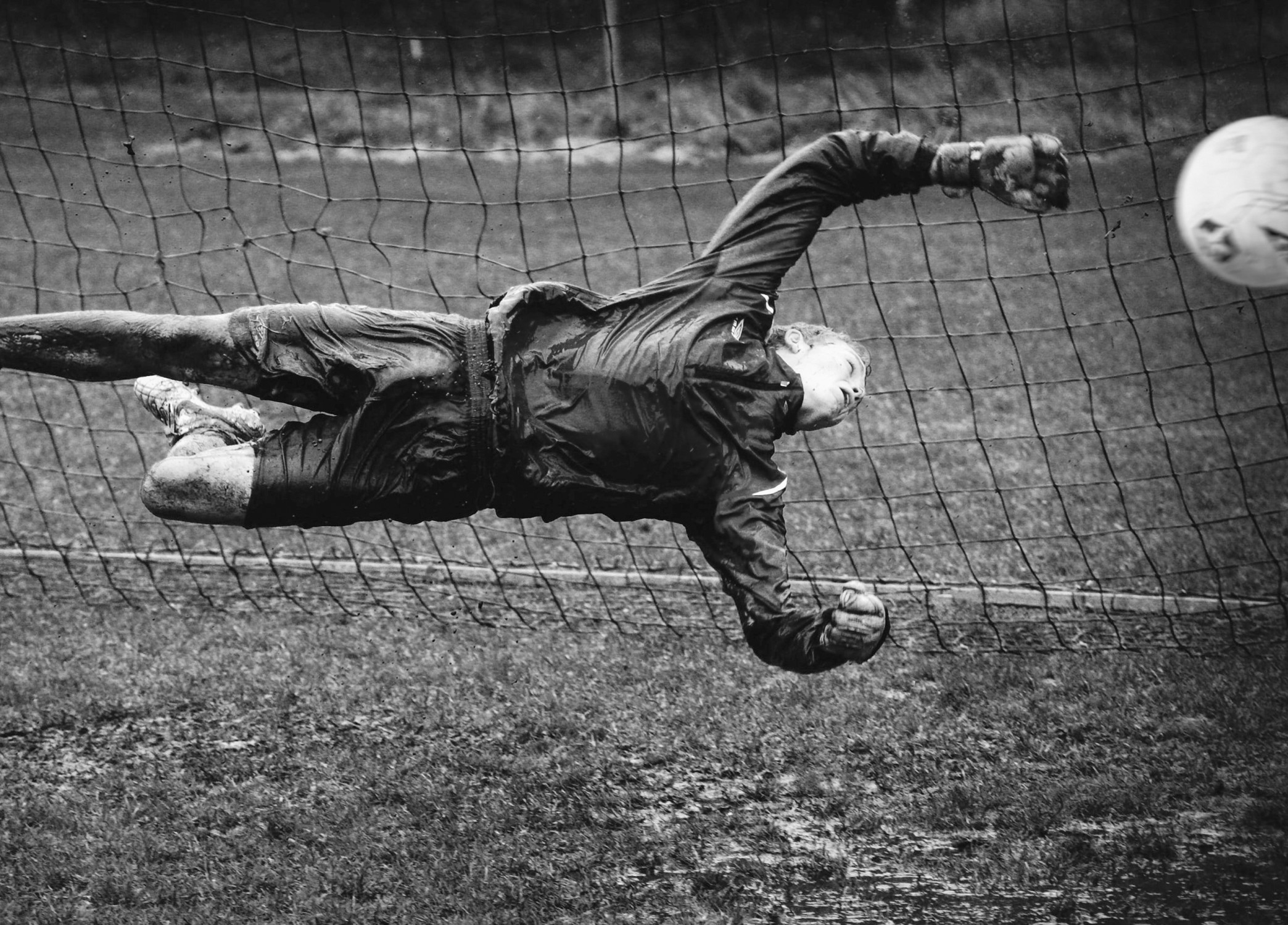Hit the back of the net every time you make a presentation (or take a penalty)

There's a large and growing band of sports personalities who are looked to by business people for their opinions on leadership, motivation, peak performance and so on.
There is doubtless value in the cross-over. But I wonder if sometimes business might learn as much from the world of theatre as it does from sport.
There was a fascinating article written a few years ago by Matthew Syed: How not to crack up under pressure (Times, 5 May 2016. It's so good that it's still stuck to the fridge five years later!).
In it he explores the concept of ‘expert-induced amnesia’, more widely known as unconscious competence: the state where you’ve practised something so much that you can do it – and do it well – without even thinking about it. As Syed explains: “Practice enables experienced performers to encode a skill in implicit memory so it can be delivered without conscious attention.”
Practice and unconscious competence
The process of practice takes us on a journey from conscious incompetence (novice) through conscious competence (learner) to unconscious competence (expert). As we practise, our neural pathways that relate to that particular activity strengthen, to the point where we are running on autopilot. We switch from using the brain’s ‘explicit’ system to consciously monitor what we’re doing to the ‘implicit’ one where we perform without thinking.
In fact, more often than not, we’re able to perform precisely because we don’t have to think. As soon as we start consciously analysing what we’re doing – driving the car or walking downstairs for instance – things start to unravel.

Question is, under ‘match pressure’ – when we’re most acutely aware of the consequences of failure and most focused on ‘getting it right’ – how do we stop the brain from switching on that debilitating ‘explicit’ consciousness? How do we prevent ourselves from cracking up, abandoning our endlessly practised and implanted skills, and reverting to the level of a stumbling novice?
Focus on one key thing ...
According to a sports coach cited by Syed, the answer lies in focusing on one key thing. Doing this stops us thinking about what could go wrong – which would make us conscious and bring out the novice in us. “For the footballer taking a penalty, that’s the contact point between boot and ball. If you can narrow it down to that one crucial contact, you can stay in the moment – and deliver” (rather than crumbling as you think about the millions of pounds the club will lose if you miss and get relegated). The coach advocates the same approach for public speaking: to settle your nerves, focus on people in the back row for a few seconds before you start, or on projecting your voice, or on your posture.
Now I’m sure that works brilliantly for a footballer taking a penalty, when the point of contact between boot and ball represents the totality of the task at hand: to strike the ball as roundly and accurately as possible. But a professional actor would not recommend a speaker to focus on someone in the audience (what if they’re asleep? Looking at their watch? Whispering to the person next to them?); nor exclusively on voice projection, or on posture.
... but make sure it's the right thing!
Sure, these are important, but (unlike boot on ball) they don’t encapsulate the essence of what a speaker has to do in order to perform well. This approach dissects the big task of ‘performing’ into small, and frankly random, components. If we make the mistake of focusing on these we’ll probably overthink what we’re trying to do and regress to conscious incompetence.
So focus is great, but it has to be on the right thing: the thing that goes to the heart of what you’re doing, and is simple and intuitive enough that it won’t abandon you in your moment of need. Accurately pinpointing the ‘boot-on-ball’ sweet spot in any discipline requires an intimate and specific understanding of the task at hand, otherwise we can find ourselves following well-meaning but inappropriate and unreliable hints and tips.

The power of Performance Energy
The ‘boot-on-ball’ touchstone of the expert speaker – as with the professional actor – is performance energy. Sure, voice projection and modulation, body posture, facial expression, movement and gesture and so on are all very important, but what powers them all, the beating heart on which they all depend, is performance energy.
Performance energy is what keeps us in the present and in the moment, and safe from our negative subjective feelings. Performance energy is essential to bridge the gap between how we think we’re coming over and how we are actually perceived.
It isn’t about shouting or going over the top. It’s a level of intensity that brings congruence to how we look and sound so that we are experienced as real, natural and engaging. It provokes a level of personal connection and disclosure that allows an audience to identify with us and be moved by us. It’s what takes us out of ourselves and implants us in the hearts and minds of other people.
And the really great thing is that, when the pressure’s on, performance energy provides you with a safe, protective place – and it’s totally reliable. If your nerves start to kick in negatively, if you feel the audience is slipping away, pile on the performance energy and you will hit the back of the net. Guaranteed.
While business can undoubtedly learn things from the world of sport, please don’t overlook the great wealth that the professional theatre has to offer. And I can’t get away from the fact that most of us, at work, spend a lot of time talking. We don’t often have to kick a ball.


